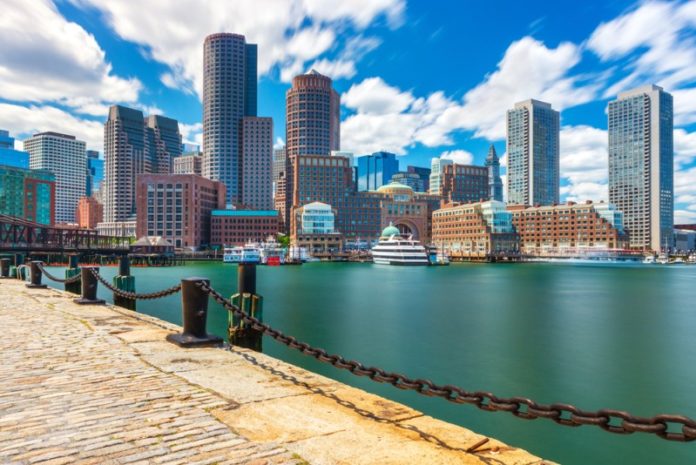A bill introduced by Massachusetts state lawmakers would shield marijuana consumers and businesses in compliance with state law from federal prosecution.
The tension between state and federal governing bodies has been building for a while, especially since the Trump administration has been stepping up efforts to apprehend and deport undocumented residents. Many states and cities have declared themselves sanctuaries for the undocumented. Massachusetts has six cities that have declared their intention to block federal agents from deporting its residents.
Massachusetts now seems willing to take their fight against federal authorities even further and could soon become a marijuana sanctuary state. State reps Dave Rogers and Mike Connolly have filed the “Refusal of Compliance Act.” If passed, this bill would prevent state and local authorities from working with federal law enforcement to arrest marijuana industry workers and consumers unless agents have a warrant.
“Massachusetts voters have gone to the polls and expressed their support for what I’d call a sensible drug policy and an end to marijuana prohibition,” Connolly according to City Lab. “I can appreciate the parallel between this and more typical sanctuary-state-type stuff. I think the comparison is pretty clear, to the extent that we are a state government responding to the will of our own voters and people in our community.”
The ballot initiative to legalize marijuana that was approved by residents already included language that instructed state authorities not to work with the federal government when it came to prosecutions. Conolly and Rogers’ bill is seen as reinforcing that.
Carol Rose, executive director of the Massachusetts branch of the American Civil Liberties Union, wants to ensure that the will of Massachusetts voters is protected and welcomed the bill by Connolly and Rogers.
Rose feels that “having this bill is a welcome move, because I think it sends a message—not only to the Trump administration and Department of Justice, but all the law enforcement in Massachusetts—that you follow the law of [the state] when it comes to drug laws. You don’t serve as agents for the Trump DOJ.”











